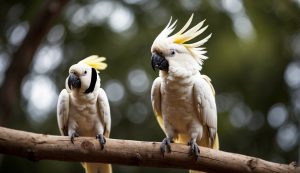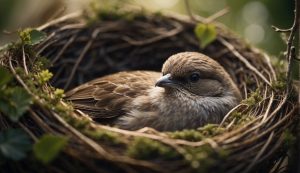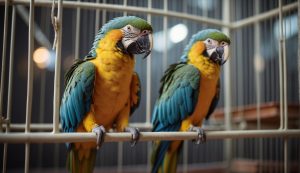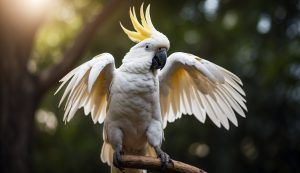How Long Do African Greys Live? Lifespan and Care Tips
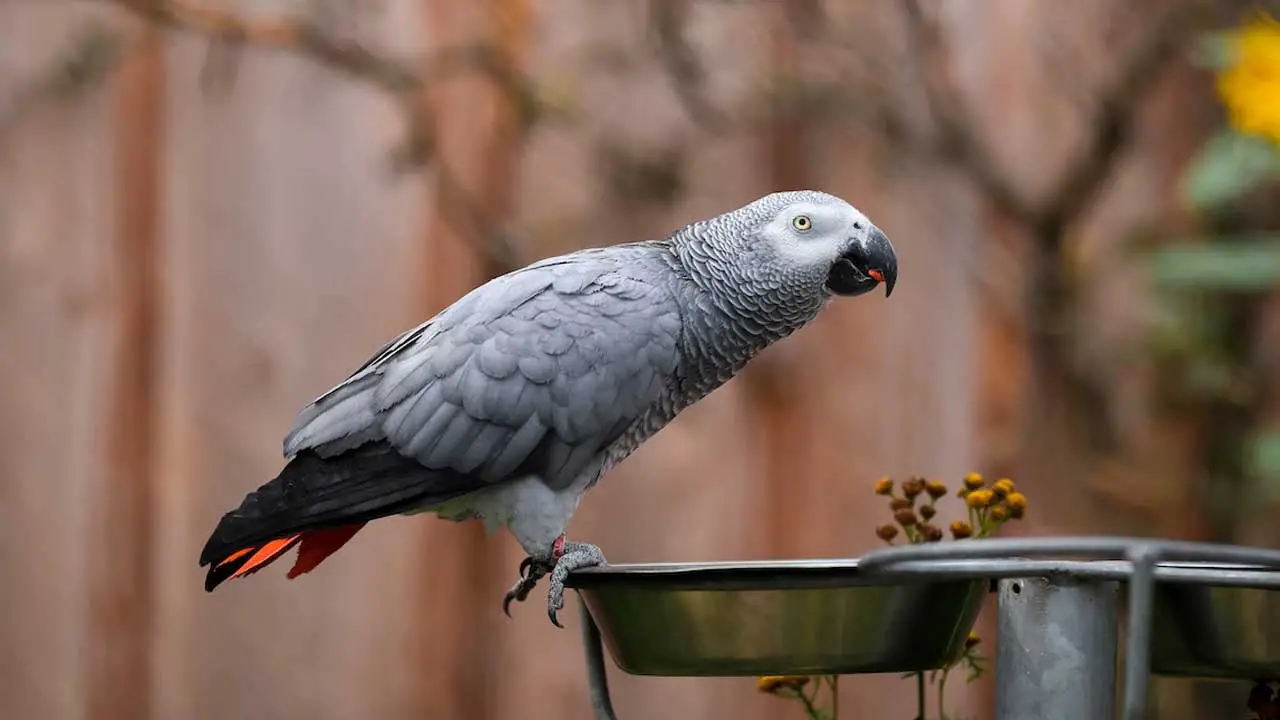
African grey parrots are one of the most intelligent and popular pet birds in the world. These birds are known for their ability to mimic human speech and their playful personalities. However, owning an African grey parrot is a lifelong commitment that requires a lot of attention and care. One of the most important aspects of caring for an African grey parrot is understanding their lifespan and how to ensure they live a long and healthy life.
So, how long do African greys live? The answer to this question is not straightforward. African grey parrots have a long lifespan, but it can vary depending on several factors such as their environment, diet, and quality of care. In the wild, African grey parrots have an estimated average lifespan of 22.7 years. However, in captivity, these birds can live for 40 to 60 years or even longer if given proper care and attention.
Despite their long lifespan, many African grey parrots are not cared for properly, which can significantly reduce their lifespan in captivity. It’s essential to understand the factors that contribute to the longevity of these birds and how to provide them with the best possible care to ensure they live a long and healthy life. In this article, we will explore the average lifespan of African grey parrots, the factors that affect their lifespan, and how to care for them to ensure they live a long and happy life.
Table of Contents
Average Lifespan of African Greys
African Grey Parrots are known for their intelligence and their ability to mimic human speech. One of the most important factors to consider when adopting an African Grey is their lifespan. These birds can live for several decades with proper care and attention.
Factors Affecting The Lifespan of African Grey Parrots
Several factors can impact the lifespan of African Grey Parrots. Genetics, diet, environment, and overall care are all crucial to their health and longevity.
| Factor | Impact on Lifespan |
|---|---|
| Genetics | Some African Greys may have a genetic predisposition to certain health issues, which can impact their lifespan. |
| Diet | A healthy, well-balanced diet is crucial to the health and longevity of African Grey Parrots. A poor diet can lead to health issues that can shorten their lifespan. |
| Environment | African Greys require a clean, safe, and stimulating environment to thrive. A stressful or dangerous environment can impact their health and lifespan. |
| Overall Care | Proper care and attention from their owner, including regular vet check-ups, can help ensure a long and healthy life for African Grey Parrots. |
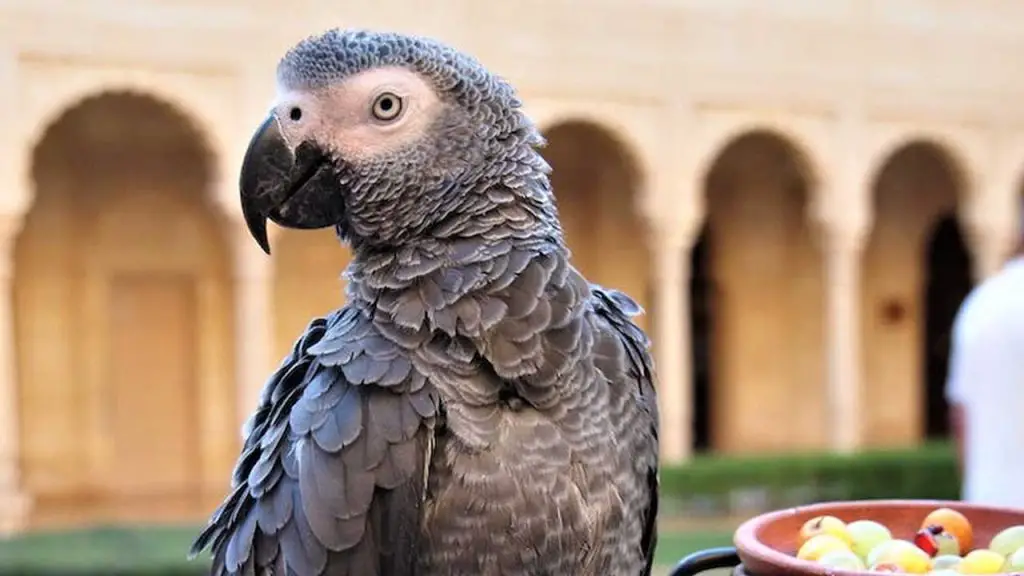
How to Increase the Lifespan of an African Grey Parrot
While genetics play a role in the lifespan of African Grey Parrots, there are several things owners can do to help increase their bird’s lifespan.
- Provide a healthy, well-balanced diet that includes fresh fruits and vegetables.
- Ensure their environment is clean, safe, and stimulating.
- Provide regular exercise and mental stimulation, such as toys and puzzles.
- Take your African Grey for regular vet check-ups and address any health issues promptly.
- Give them plenty of love and attention to help reduce stress and anxiety.
By taking the necessary steps to ensure the health and well-being of your African Grey Parrot, you can help increase their lifespan and enjoy many happy years together.
What Is the Longest Living African Grey?
Which African grey has lived the longest? Tarbu, an African grey parrot male, was born in Tanzania in 1957, making him the oldest African grey parrot ever recorded as living. This remarkable bird reached the age of 55 before finally passing away in England in the year 2012.
Signs of Aging in African Greys
Physical Signs
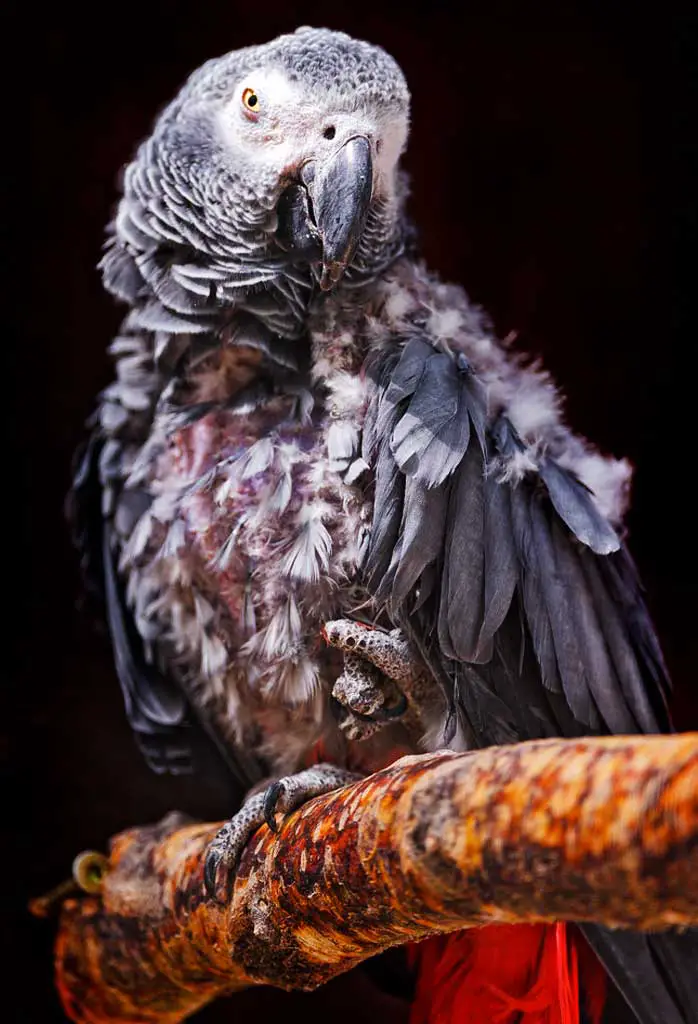
As African Grey parrots age, they may experience a variety of physical changes that can indicate their age. Some of these changes include:
- Loss of feathers or bald patches
- Changes in feather coloration
- Decreased muscle mass
- Arthritis or joint pain
- Decreased vision or hearing
If you notice any of these physical changes in your African Grey, it may be a sign that they are aging and may require additional care and attention.
Behavioral Signs
Along with physical changes, aging African Grey parrots may also exhibit behavioral changes. Some common behavioral signs of aging include:
- Decreased activity levels
- Decreased vocalization
- Changes in appetite or eating habits
- Increased sleep or rest time
- Decreased interest in playing or interacting with toys
If you notice any of these behavioral changes in your African Grey, it is important to monitor them closely and provide any necessary additional care or attention.
It is important to note that not all African Grey parrots will exhibit these signs of aging, and some may show signs earlier or later than others. Regular veterinary check-ups and monitoring of your bird’s behavior and physical condition can help ensure that they receive the best possible care as they age.
Common Health Issues in African Greys
Respiratory Infections
African Greys are prone to respiratory infections caused by bacteria, viruses, and fungi. Symptoms of respiratory infections include sneezing, coughing, nasal discharge, and difficulty breathing. These infections can be caused by poor ventilation, dirty cages, or exposure to other sick birds. Treatment usually involves antibiotics and supportive care, such as humidifiers or nebulizers.
Psittacine Beak and Feather Disease
Psittacine Beak and Feather Disease (PBFD) is a viral disease that affects the feathers, beak, and immune system of African Greys. Infected birds may have abnormal feather growth, beak deformities, and a weakened immune system. PBFD is highly contagious and can be spread through direct contact with infected birds or contaminated surfaces. There is no cure for PBFD, and infected birds may require supportive care to manage their symptoms.
Aspergillosis
Aspergillosis is a fungal infection that affects the respiratory system of African Greys. Infected birds may have difficulty breathing, decreased appetite, and lethargy. Aspergillosis is often caused by exposure to moldy or damp environments, such as dirty cages or food. Treatment usually involves antifungal medications and supportive care, such as nebulizers or oxygen therapy.
It is important to monitor your African Grey for any signs of illness and to provide them with a clean and healthy environment. Regular veterinary check-ups and preventative care can also help to prevent and detect health issues early on.
How to Care for an Aging African Grey
Dietary Needs
As African Greys age, their dietary needs may change. It is important to provide them with a balanced diet that includes fresh fruits, vegetables, and high-quality pellets. Consult with a veterinarian or avian nutritionist to ensure your bird is receiving the appropriate nutrients for their age and health condition.
Environmental Needs
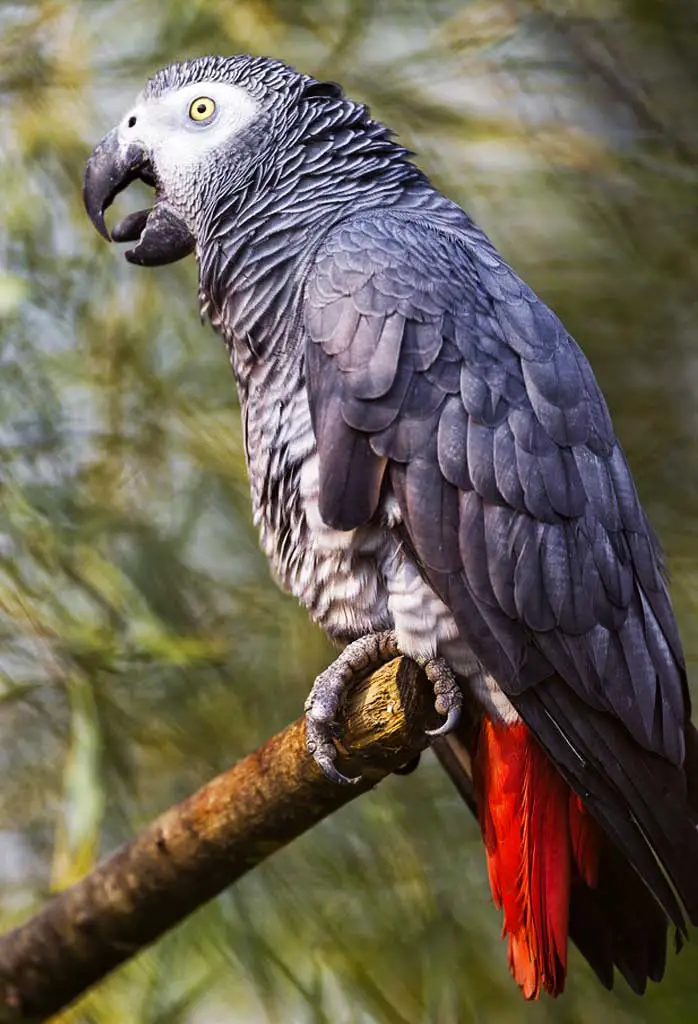
As African Greys age, they may become more sensitive to temperature changes and drafty areas. It is important to provide them with a comfortable environment that is free from stressors. Consider providing a soft perch or cushioned flooring to help alleviate joint pain and discomfort. Additionally, provide your bird with plenty of natural light and fresh air to promote overall health.
Exercise and Mental Stimulation
As African Greys age, they may become less active and require less physical exercise. However, mental stimulation is still important to maintain their cognitive function and prevent boredom. Provide your bird with a variety of toys and puzzles to keep them engaged and mentally stimulated. Additionally, spend time interacting with your bird through training exercises and socialization to promote their overall well-being.
Overall, caring for an aging African Grey requires attention to their changing needs and providing them with a comfortable and stimulating environment. Consult with a veterinarian or avian specialist to ensure your bird is receiving the appropriate care.
Do Birds Show Signs of Aging?
Unlike mammals, birds don’t show physical signs of aging. This creates a challenge for researchers who want to study their lifespans. If we can’t age adult birds, how can we study their lifespans?
One method that researchers use to determine the age of a bird is by examining its feathers, which can provide information about its growth patterns. However, this method is not always accurate, and it can be difficult to determine the exact age of a bird.
Another way to study the lifespan of birds is by observing them in the wild or in captivity. By tracking individual birds over time, researchers can estimate their lifespan and determine factors that may affect their longevity.

